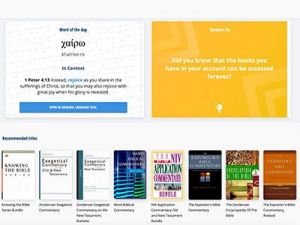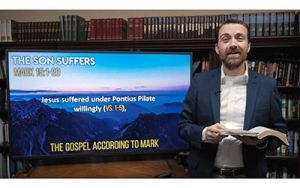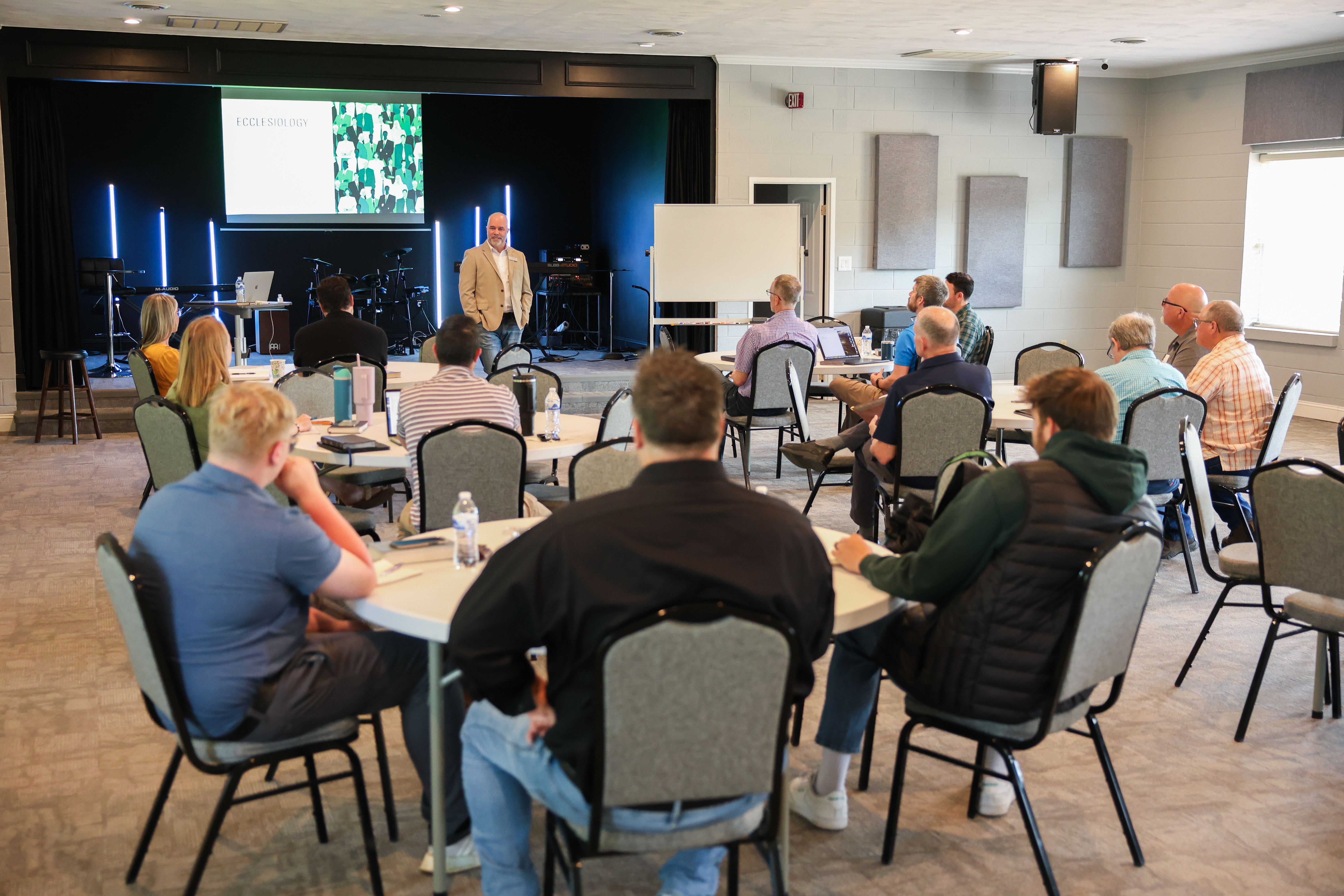Search News Archives
Filter News Articles
Additional Navigation
Online platforms equip future pastors and aid evangelism in digital age; free webinar series kicks off Thursday
April 7, 2020 : By Office of Communications & Public Engagement
“For though I am absent in body, yet I am with you in spirit, rejoicing to see your good order and the firmness of your faith in Christ.” – Colossians 2:5 (ESV)
When the apostle Paul wrote these words, he was imprisoned in Rome and writing letters to encourage congregations throughout Asia Minor.
Dr. Stephen Lowe believes online education and outreach meet Biblical models of the Apostles.

Stephen D. Lowe, Ph.D., graduate program director of Christian Leadership & Church Ministries at Liberty University’s John W. Rawlings School of Divinity, believes the verse shows that believers don’t have to gather in a physical location to be the Church.
“Our identity is not tied to where we meet. Through the spirit, we are always connected; we are always together,” he said.
Lowe said the growth of the church and spiritual formation of believers that Paul and Peter achieved simply by hearing and reading the letters can still happen today through online/digital education and ministry.
“Their technology was the letter — our technology is the computer and the internet,” Lowe said.
Although some institutions have debated about using virtual methods to prepare men and women to do ministry in person, Liberty, as a pioneer in distance learning, has long embraced the distance and digital model of ministry.
“We provide a biblical theological model of spiritual formation that includes the complete picture of where ministry takes place in the 21st century,” said Lowe. “If we simply prepare students to do ministry in brick-and-mortar churches, then we really haven’t prepared them fully.”
The School of Divinity is offering further preparation in digital ministry this week in a free online webinar series, “Online Church in the Time of Coronavirus,” beginning Thursday, April 9. The webinar will span four consecutive weeks (each Thursday) and feature speakers covering the rationale and techniques for online church, basics of digital delivery, and lessons learned. Speakers include Lowe, Hollywood film and TV producer Phil Cooke, Jeff Reed from Stadia Church Planting, and Jay Kranda, online campus pastor at Saddleback Church. Details can be found on the webpage.
The Wordsearch Bible aids students in accessing digital resources.

Dr. Chris Hulshof, associate professor for the School of Divinity, has been working with Lifeway Christian Resources since 2014 to develop the Wordsearch Bible, an online application that gives students access to a variety of digital Bible study tools within the framework of a website. Resources within the application’s digital library can be cross-referenced through hyperlinks and reference notes so professors can provide students with guided learning experiences.
Hulshof said the Wordsearch Bible is a perfect example of how digital learning can be utilized in the classroom.
“I used to tell my students to find me some information about Samaritans and they would ask me where to go for that,” he said. “Now I know when I say ‘read this’ and it has all those clickable links in the text that they will come back with a knowledge of Samaria.”
The application also helps the way books are written since authors have to think about creating a digital resource rather than a typical textbook.
“When our professors have contributed resources that find their way onto Wordsearch, we think about building content-rich resources that are digitally minded first and then print-minded second,” said Hulshof. “It’s a completely different framework, thinking digitally versus something that sits on the shelf in a bookstore.”

Dr. David Wheeler demonstrates evangelism tools available for mobile devices.
As effective as digital resources can be in preparing and equipping the next generation of pastors and ministers, Dr. David Wheeler, professor of evangelism and senior executive director of LU Shepherd, believes there is also a place for digital technology and online resources in spreading the Gospel. Wheeler said making evangelism easier for students is as simple as providing them accessible tools.
“I go through these phone applications in my graduate and undergraduate classes because I want to put stuff in their hands — apps that they can use: The Story, Three Circles, 1Cross, Share Jesus Without Fear. These are things they can use to start a conversation and to get people to the Gospel.”
Transitioning to digital tools is a natural progression, and Wheeler believes it is vital to adjust the methods of reaching people with the message of the Gospel.
“We don’t use papyrus any more, we don’t use hieroglyphics. We use whatever tools we have to accentuate the Gospel, so any tool I can put in the hands of my students that makes it easier for them to share the Gospel with friends and family, I’m for that.”
Dr. Tyler Scarlett, adjunct professor in the School of Divinity and a local teaching pastor, believes ministry in the digital age provides more opportunity than ever before. In his homiletics classes, he uses Logos Bible Software as an aid to teach students sermon preparation and help them build their library.

Tyler Scarlett, an adjunct professor at the John W. Rawlings School of Divinity and a local teaching pastor, conducts online services for his congregation.
“If I’m at a coffee shop preparing, or I’m planting a church, or even as a missionary around the world, I can access information (on Logos),” Scarlett said.
Although the digital world presents many benefits, Scarlett believes pastors need to be careful of being caught up in the lure of online fame and neglecting their local church.
“There is a temptation in this celebrity culture to want more follows, get more views, have more people clicking, and you kind of forget about the people that are actually listening to you Sunday after Sunday,” he said. “You start preaching to everybody, which means you are preaching to nobody.”
Dr. Wheeler believes that no matter the vehicle, the message is still the same.
“These digital tools are just modern-day tracts and tools for sharing the message of the hope of Jesus Christ in a world that is full of questions and, more than ever, needs answers.”
Using these digital platforms and applications fit perfectly within the “saturation evangelism” philosophy of Dr. Jerry Falwell, the founder of Liberty University, who used the advancement in television and radio technology in his day to promote “preaching the Gospel to every available person at every available time by every available means.”
“Everything we do in the School of Divinity ties back to our mission: ‘To come alongside the local church in its quest to fulfill the Great Commission,’” said Dr. Troy Temple, interim dean. “By applying these digital tools and, in some cases, helping to develop them, we are using innovation to make the Gospel messages more accessible.”
Liberty University’s John W. Rawlings School of Divinity is the world’s largest school for religious studies and ministerial training, offering bachelor, graduate, and doctoral level programs to equip students for local and global ministry. Through Liberty University Online Programs, divinity students have access to a robust online education program where they can study under some of the world’s leading evangelical professors.


